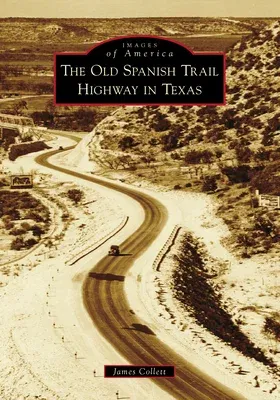James Collett
(Author)The Old Spanish Trail Highway in TexasPaperback, 16 August 2021

Qty
1
Turbo
Ships in 2 - 3 days
Only 1 left
Free Delivery
Cash on Delivery
15 Days
Free Returns
Secure Checkout

Part of Series
Images of America
Print Length
128 pages
Language
English
Publisher
Arcadia Publishing (SC)
Date Published
16 Aug 2021
ISBN-10
1467106925
ISBN-13
9781467106924
Description
Product Details
Author:
Book Format:
Paperback
Country of Origin:
US
Date Published:
16 August 2021
Dimensions:
23.19 x
16.41 x
0.99 cm
Genre:
Southwest U.S.
ISBN-10:
1467106925
ISBN-13:
9781467106924
Language:
English
Pages:
128
Publisher:
Series:
Weight:
317.51 gm